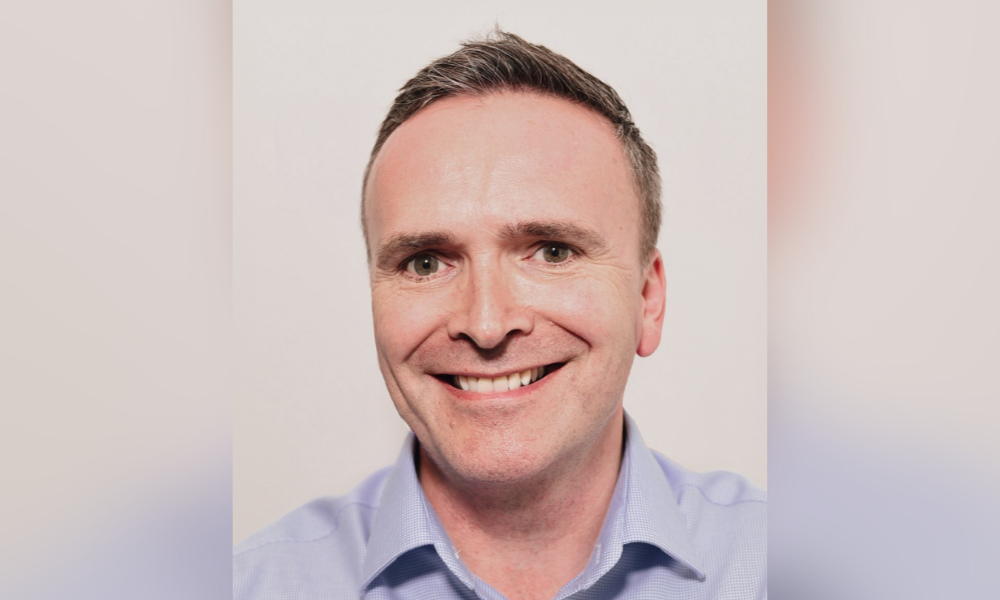Industry personnel share their tips for working healthily

While mortgage professionals spend much of their time being preoccupied with the well-being of their clients, and ensuring good outcomes for them long term, how much attention do they give to themselves and their health? Caught up in what can be the high pressure day-to-day existence of mortgage business, it is likely that they too often put themselves bottom of the list in their priorities.
It’s something that the industry is increasingly aware of, it seems. Pepper Money, for example, has developed a retreat for brokers, to tackle what it describes as ‘broker burnout’, with a set of well-being events focused on mindfulness, and self-care tips. It believes it offers the opportunity to connect with peers outside work, with the aim of combatting stress and restoring balance.
Liverpool Mortgages is, meanwhile, the newest signatory of The Mortgage Industry Mental Health Charter, joining lenders such as Skipton Building Society and Dudley Building Society in pledging to promote mental health awareness and well-being across the UK mortgage sector. Some 250 businesses have committed to a common purpose of normalising mental health conversations and fostering a culture of openness, support and community.
But how challenging is it for those who are working in the mortgage space to take time for themselves, and to focus on their own health?
“I have had a very bumpy road, health wise,” shared mortgage adviser Rachel Lummis (pictured left), owner of Xpress Mortgages, who added jokingly: “Sitting at a desk all day doing five to nine - what a way to make a living - I work longer hours than Dolly Parton!”
She continued: “I had to do something about it, sitting at a desk all day. I decided to take the plunge and try my hand at swimming as that was pretty much the only thing left I could try to keep fit that was suitable for me. I can no longer run like I used to, and had to give that up. I didn’t much like it anyway and could always find an excuse not to drag myself out of bed at 5 am to go in the freezing cold, wind and rain and run around the block. It didn’t feel safe either.
“My first day swimming, and pretty much the whole of November and December, saw me get into an outdoor pool in the pitch black, with the outside temperature sometimes below zero, to do 20 lengths - I counted them. I tried all I could to enjoy it but as a non-swimmer it wasn’t easy. Then suddenly, it clicked and I started swimming with my head under water and got the buzz for it. There is something rather calming about being under water. I love it so much now, especially as I can now do a length without choking. I no longer count the lengths and genuinely look forward to it. The summer 6 am mornings are light and the sun shines through the trees. It’s beautiful and just the most perfect start to the day.”
Lummis follows up with ten minutes in a hot tub, that she describes as ‘pure bliss’, and she is still at her desk by 7.15 am. “It’s really worked for me finding a new hobby and passion,” she explained. “We really do need something to enjoy that takes us away from the desk and ideally into nature and the great outdoors, and it’s good for not only our physical health but also our mental health too. It’s amazing how different, how fresh and motivated you feel afterwards. I would thoroughly recommend swimming. If I can learn in my fifties, then anyone can. I feel great!”
For Pete Dockar (pictured second from left), chief commercial officer at lender Gen H, a good mindset appears key. “I think the most important thing is to know that what you do matters and has a sense of purpose,” he said. “Working in mortgages, enabling homeownership, I think, gives many of us a head start versus other industries and professions. This is particularly true for organisations like Gen H but, happily, we are far from alone in the mortgage industry in having a desire to be a force for good, not just profit.
“That doesn’t mean there isn’t pressure and difficult days but it does mean that having a ‘why’ gives the day-to-day challenges of the ‘what’ and the ‘how’ more perspective and meaning. You still need outlets though. I’ve found exercise, music and my young family all help me maintain a sense of perspective. I really do believe a change is as good as a break, but there is no one panacea as everyone has different limits and different ways to restore their balance. The most important thing is to recognise those limits and not be too hard on yourself as you approach them.” He added: “I’m also a huge fan of the stoic philosophers - Aurelius & Seneca especially - but that is most certainly not for everyone!”
READ MORE: From poker to broker: The specialist finance adviser playing a new hand
Making space to recharge
Anne-Marie Blackler, (pictured second from right), mortgage adviser at Prestige Private Finance acknowledges the pressure that come with the role. “Being a mortgage broker means showing up when it matters most, helping people make some of the biggest decisions of their lives, often under intense pressure,” she said. “I’ve always loved the work, but I’ve learned over time that without safeguarding your wellbeing, burnout isn’t just possible, it’s inevitable.
“In the past year, I’ve made more space for what helps me reset and recharge: kickboxing, reformer pilates, long runs, and the joy of switching off with a good audiobook. I recently ran my first 10K and I’m currently training for the Royal Parks Half Marathon. These aren’t just hobbies, they’re essential for how I stay sharp and resilient.”
She continued: “Anyone who knows me knows how focused I am on my career. I’ve always pushed to be the best and, for a long time, that meant giving absolutely everything to the job, even when it spilled into my personal life. I used to believe that being ‘all in’ meant being constantly switched on. Now, I’ve found a better rhythm. I still give 110% to everything I do, but I also understand that looking after my mental and physical well-being isn’t a luxury, it’s a necessity. It’s what allows me to be at my best, for my clients, my team, my family, and myself.”
Gerard Boon (pictured right), managing director of Boon Brokers acknowledges that in recent years, there has been a spotlight on the mental health of the UK's workforce - and for good reason. “In financial services where pressures are high in a pessimistic economic climate, it's no wonder that many brokers suffer with poor mental health,” he said. “I'm in a very fortunate position. I love what I do, which is to manage and grow a business that I am passionate about. I wake up with energy and enthusiasm every day, which I try to instil into my staff to maximise their positivity and productivity at work.
“However, I strongly sympathise with fellow mortgage professionals who feel mentally drained and negative in this current climate. It has been many years since the forecast for the UK economy was positive. However, I do believe that there are many areas to be optimistic about in the market that should keep everyone positive for the future. With the prospect of interest rates falling, demand returning, and reform to planning permission in housing, etc, there are plenty of opportunities for growth to be excited about. Saying that, it's important that brokers are self-aware about their mental health. Due to the stressful nature of our industry, time off to recover is critical for success and to prevent burn-out. Personally, I always book time off of at least one week every 2-3 months. This break allows me to reset, recover, and prepare future projects.”

Martin Sims (pictured inset, above), distribution director at lender Molo Finance, has a thought provoking take on modern working life. “For work to be worthwhile, we expect to be tested and, often, be expected to absorb what might appear to be ever increasing levels of pressure,” he observed. “I do have a few pointers that might be useful. It’s not always possible, but If you can, at least once and preferably early in your career, work in a start-up. The pace, urgency and team ethic that a start-up fosters and demands really sets the scene for other roles to be compared against later. Life in a start-up increases tolerances, raises perceived limits, by necessity, and adds some perspective.”
Sims continued: “Stop for lunch, or just stop - find a few minutes each day for something not related to work. It might just be away from the desk or workstation, doing a non-work-related task, perhaps someone’s task you can assist with. Where possible, work for and with, people whom you respect - even better, if you like them too. Yes, they are ‘not here to be liked’ and neither are you, however, when the pressure increases, good people work better together. They absorb more and make less waves.”



